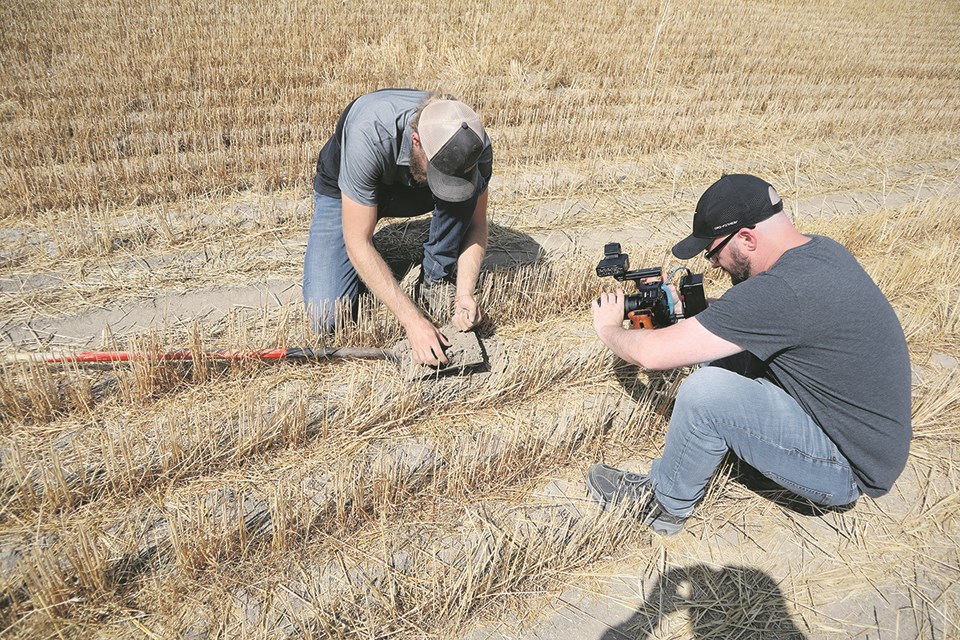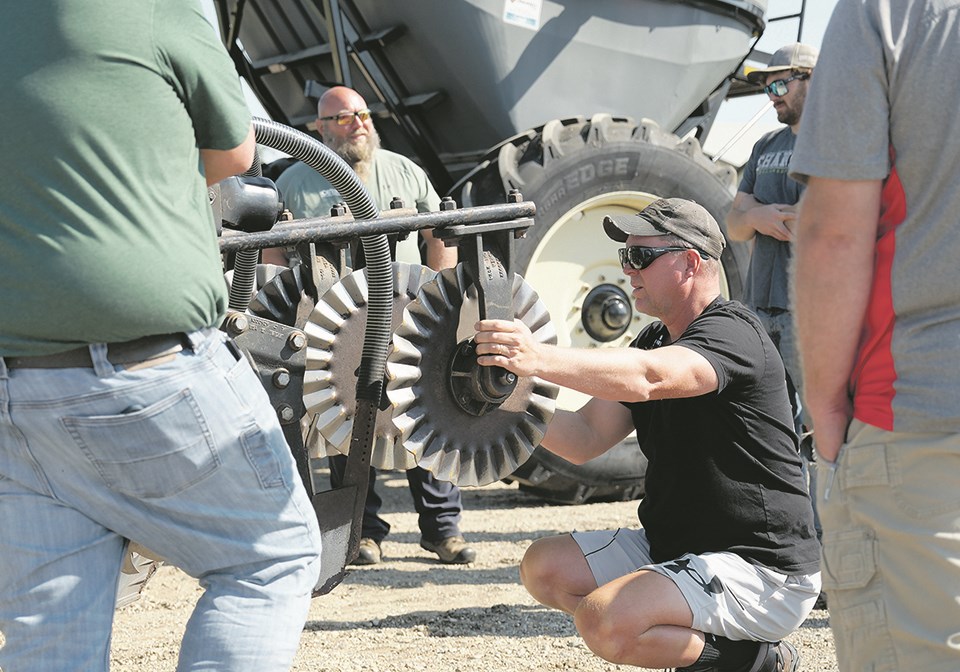GLACIER FARMMEDIA – A program designed to provide agronomists with practical soil health knowledge — and a peer sharing network on the subject — will soon be establishing roots in Manitoba and Saskatchewan.
The Canadian Prairies Trusted Advisor Partnership (TAP) plans to launch its first cohort of about 15 agronomists in January 2025. It will serve as a Canadian counterpart to the North Dakota Trusted Advisor Partnership, which was founded in 2022 to provide soil health training to certified crop advisors in that state.
The Canadian Prairies TAP is being coordinated by the Sustainable Food Lab, a U.S.-based non-profit organization focused on promoting sustainable food production. It has received support from General Mills, PepsiCo, Bimbo Canada, Nature United and Â鶹ÊÓƵ East Research Farm.
Assiniboine College in Brandon will host TAP’s online curriculum and co-ordinate issuing continuing education credits to program participants.
The goal of the program is to upskill agronomists by providing them with the latest information on sustainable land management practices which they can then share with their farm client base.
Project co-lead Ben Harris, a staffer at Sustainable Food Lab, says it made sense to expand the program into the Prairie provinces, as most of the companies sponsoring its U.S. equivalent also have a footprint in this country — and this will boost their ability to enhance supply chain resilience on both sides of the border.
Another reason for offering the program in Canada is that most agronomists and farmers who are looking to push the envelope with soil health practices don’t have easy access to information on how those practices are being developed or used on farms, says Luke Struckman, project co-lead and a consultant with the Sustainable Food Lab.
 TAP team members record an instructional video in crop stubble. | In-House Advertising photo
TAP team members record an instructional video in crop stubble. | In-House Advertising photo
“If you are a farmer or agronomist who is interested in experimenting with or implementing the latest soil health practices on your farm, there’s not a lot of good information out there. There isn’t a central hub you can go to,” Struckman explains.
“TAP is really about translating that cutting-edge science into practical on-farm advice.”
The agronomist-led curriculum for the multi-month course will be mostly video-based, and learners will be able to access it online through Assiniboine College’s website. The program’s two lead agronomists are developing and filming the content, with input from Nature United; Yvonne Lawley of the University of Manitoba; Lana Shaw, executive director of the Â鶹ÊÓƵ East Research Farm; North Dakota TAP team members including Lee Briese, a core author of the TAP curriculum; and Elizabeth Reaves, senior program director at Sustainable Food Lab.
The online modules are being edited by a professional film production company, In-House Advertising. Some of the subjects the course will cover include zone management, intercropping, managing salinity, erosion management and reducing soil compaction.
Participants will also take part in weekly Zoom meetings, during which they’ll be able to discuss topics covered online, how to approach farmer clients interested in learning more about soil health practices, and how best to share information with them.
A messaging platform will also be set up so agronomists can engage with one another in real-time, and those conversations can be archived and accessed again in the future to help build a long-term community of practice, Harris says.
Struckman says one of the key differences between the Canadian Prairies TAP program and other similar initiatives is that it focuses not just on the science of soil health, but also on developing relations with farm clients.
“That’s super important,” he says. “A lot of technical materials out there don’t address the best ways to approach farmer clients and help them adopt soil health practices.
“This is all voluntary. This is not to force farmer clients to take on soil health practices. It’s more about if a client has an interest, the advisor will be equipped to help them with it.”
So far, about 30 certified crop advisors have graduated from the North Dakota TAP program.
On top of providing agronomists with the latest information on soil health, logistical considerations and common barriers to adopting sustainable agricultural practices, the program has also been important in building stronger social networks, Harris says.
“It’s created a sense of camaraderie and reduced the sense of isolation that farmers and agronomists can feel if they’re interested in trying less common practices that can be perceived by neighbours as being a bit ‘out there.’ That social piece is really important,” he says.
“It’s also providing confidence, which is harder to measure and more ambiguous than hard skills development but is really just as important in a lot of ways. When it comes down to it, if an agronomist or farmer doesn’t have the confidence to either recommend or adopt a practice, even if they feel like they have all the knowledge to do so, they just won’t.”
Abbey Wick was one of the founders of the North Dakota TAP while she was working as a soil health extension specialist at North Dakota State University. One of the most gratifying aspects of being involved in the program, she says, was seeing how crop advisors who went through it developed a bond with other members of their group and were able to share information on practices that were successful for the farmers they work with.
Those advisors are now able to screen through potentially confusing information and present it to clients in a clear and concise manner, she adds.
“We’ve definitely seen a lot of interest in it here,” Wick says.
 TAP program participants at a recent event at Enderlin, N.D., west of Fargo check out a Montag fertilizer application unit designed for use in reduced-tillage and cover cropping systems. | In-House Advertising photo
TAP program participants at a recent event at Enderlin, N.D., west of Fargo check out a Montag fertilizer application unit designed for use in reduced-tillage and cover cropping systems. | In-House Advertising photo
“I think that it’s now expanding from North Dakota into Canada … is really promising. We’re showing the model, even though it’s not perfect yet, and this approach is a valid and effective way to get more acres transitioned into soil health practices that are suitable and reasonable” for long-term adoption.
Struckman says he hopes the Prairie version of the program will help convince agronomists and their farm clients to adopt the latest science-driven soil health management techniques as part of their day-to-day approach to food production.
“We hope it sort of de-risks new practices adoption,” he says.
“A lot of these practices, these newer practices, are not necessarily easy to implement. The idea is that if agronomists can lean on their peers to help walk farmers through these new practices, that eliminates a good deal of risk. They will have that peer network to draw upon. They won’t have the same kind of growing pains that many early adopters have gone through.”
Although the TAP program is available in North Dakota at no cost to participants, the Prairie version will charge a nominal fee to help recoup some of the costs of providing the program.
While the initial cohort of learners in Manitoba and Saskatchewan will be relatively small, organizers expect class sizes to grow for future sessions. Over the next five years, plans call for the Canadian Prairies TAP to train more than 225 agronomists and introduce conservation agriculture to over 500 farmers by 2029. The program could be expanded to other provinces, including Alberta, if there’s sufficient interest, Harris adds.
Related Coverage




